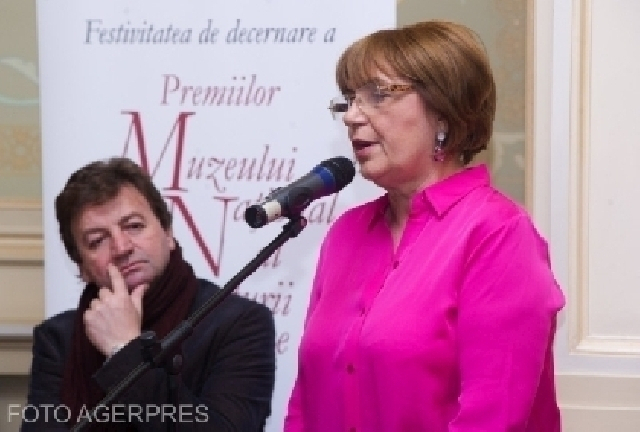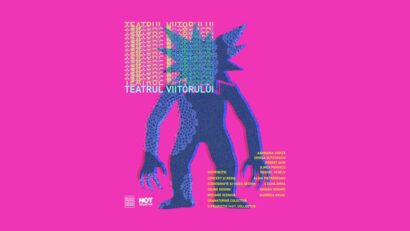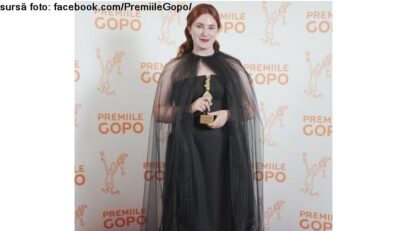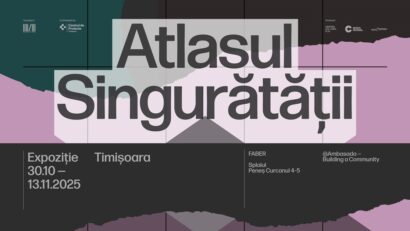Romania’s veteran writers and their European standing
Critically-acclaimed prose writer Gabriela Adamesteanu ‘s 80th birthday anniversary is being celebrated at the Museum of Romanian Literature in Bucharest

Corina Sabău, 09.07.2022, 14:00
Critically-acclaimed novelist and journalist Gabriela Adamesteanu’s exceptional qualities as a fiction writer have from the early days of her career recommended the author as a canonic author in contemporary Romanian literature. Gabriela Adamesteanu turned 80 on April 2nd, 2022. Her birthday anniversary was celebrated at the Museum of Romanian Literature. Gabriela Adameșteanu is one of the best-known Romanian women writers and journalists; she is also a many-time award-winning author. Gabriela Adamesteanu compelled recognition with her maiden novel titled Wasted Morning (1984). The novel was reprinted seven times in Romanian and scooped the Romanian Writers’ Union Award. Also, it was translated into many languages. Wasted Morning was also turned into a play by the highly-acclaimed theater director, the late Catalina Buzoianu, in a memorable stage performance with the Bulandra Theatre in Bucharest, in 1986. Gabriela Adameșteanu’s most recent novel Fontana di Trevi, brought out by the Polirom Publishers in 2018, is the closing part of a trilogy, whose first volume, brought out in 1975, was titled The Even Progress of Every Day, while the second novel was titled Temporariness, and was published in 2010. Gabriela Adamesteanu is also the author of two short fiction volumes, Treat Yourself to a Vacation Day (1979) and Summer-spring (1989). She is also the author of The Encounter, a novel published in 2003. Her articles have also been collected in several volumes. The Romantic Years is the title of Gabriela Adamesteanu’s volume of memoirs, brought out in 2014. The Polirom Publishers dedicated an author series to Gabriela Adamesteanu. For fourteen years, over 1991 and 2005, Gabriela Adameșteanu was the editor-in-chief of 22, a political and social weekly publication edited by the Group for Social Dialogue. The Cultural Bucharest supplement was also initiated by Gabriela Adamesteanu, who coordinated it until 2013. At the event staged by the National Museum of Romanian Literature, literary critic and academic, Dr Carmen Mușat, the editor-in-chief of The Cultural Observer magazine, spoke highly of Gabriela Adamesteanu’s journalistic activity.
Carmen Musat:
Gabriela Adameșteanu is one of the personalities that set the trend for the independent press after 1989. Through her activity with the 22 magazine and the Group for Social Dialogue, Gabriela Adamesteanu proved authentic journalism was truly possible, genuine journalism does not sweep the serious problems of today’s society under the carpet, on the contrary, such journalism strips them bare and claims that debates be held, focusing on such problems. In my opinion, Gabriela Adamesteanu the journalist provides a key element for her prose, as I do not see a rift between Gabriela Adamesteanu the journalist and Gabriela Adameșteanu the prose writer. Quite the contrary, I think we’re speaking about continuity, to that end, and I am sure Gabriela Adameșteanu’s prose stood to gain from her activity as a journalist, just as Gabriela’s journalism has been deeply influenced by her profile as a prose writer. That extraordinary curiosity of hers, for everything related to the social dimension, to the day-to-day life, to the destiny of the human being as they grapple with history, politics and society, the topics of Gabriela Adamesteanu’s prose, whether we speak about the short fiction or the novels, are also the topics of her journalism. And I think that encounter between journalism and fiction is best illustrated by The Romantic Years. It is a volume which, apart from its autobiographical stuff, draws its inspiration from her activity as an editor-in-chief, as a trend-setter, someone who takes an interest in the problems of the city. It is at once a volume where we yet again find everything related to the narrative structure typical for fiction, everything related to the narrative style and techniques that are characteristic for Gabriela Adamesteanu’s prose.
Here is Gabriela Adamesteanu herself, speaking about the backdrop against which she took over the coordination of the 22 magazine.
Gabriela Adamesteanu:
The magazine had that initial formula, to a great extent thanks to Stelian Tanase (historian and writer, the first president of the Group for Social Dialogue, the founder and the editor-in-chief of the 22 magazine. I stood for continuity but, and there’s no doubt about it, I added a lot to that myself. Yet the independent policy, the European integration program and the pro-Atlantic leaning have existed from the very beginning with the 22 magazine, at a time when the Foreign Affairs Ministry and the country’s administration did not consider that. In the summer of 1991, the magazine fared rather badly, it had a circulation of a quite great number of copies which didn’t quite sell, so the Group for Social Dialogue opted for organizing a project competition. Registering for the competition at that time was Alina Mungiu-Pippidi (a journalist and a civil society activist) whose format for the magazine was different than that of Stelian Tanase. And then I thought I should submit a project for the magazine and I was announced I was going to be the editor-in-chief. It was in September 1991 when I took over the coordination of the magazine.
At the event staged by the National Museum of Romanian Literature, Carmen Mușat gave the audience an account of how she discovered Gabriela Adameșteanu’s writing in the 1980s.
Carmen Musat:
I discovered Gabriela Adameșteanu as a writer in the 1980s, in the dreadful 1980s when I was a student and when everybody lowered their voices as they were speaking, in admiration, about two books: Marin Preda’s The Most Beloved Man on Earth and Wasted Morning, by Gabriela Adamesteanu. Those were the years when a book was smuggled goods, if you did not have a connection in a bookshop it was hard to get hold of those books, the queues in bookshops were very long, and the lady bookshop keepers took advantage of that and sold those particular books together with other propaganda volumes. Wasted Morning was the talk of the party in various milieus of the society of that time. People talked about it at the university, the book was talked about in the men of letters’ knowledgeable circles, it was even discussed at the hairdresser’s. People kept talking about the authenticity of the book, about the fact that it was a book that managed to capture history’s twists and turns and what happened with the human beings in such circumstances. For Gabriela Adamesteanu the prose writer, it was essential for us to understand the way in which history on a large scale takes its toll on the small-sale histories, on the destinies of ordinary people who become victims of history, irrespective of their social ranking which could have otherwise made the difference.
Between 2000 and 2004, Gabriela Adameșteanu was the vice-president and, later, the president between 2004 and 2006, of the Romanian PEN Center. She was also a member of the Jury for the Latin Union Prize (2007 – 2010) and honorary president of the first jury for the Romanian Goncourt Prize, in 2012. She is the recipient of the Chevalier de l’Ordre des Arts et des Lettres awarded by the French Ministry of Culture in 2013. Her books have been constantly reissued. Her volumes have been translated into 16 languages, and were brought out by well-known publishers. Gabriela Adamesteanu’s work is critically acclaimed, nationally and internationally.
(EN)






























